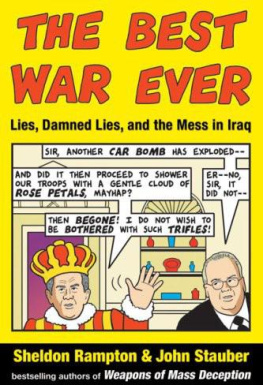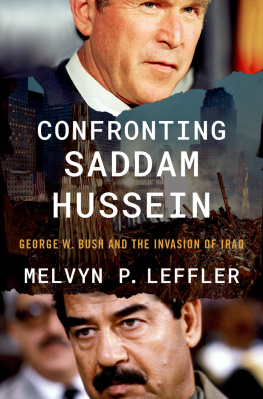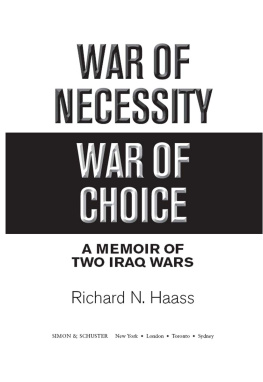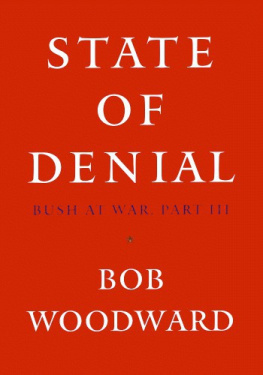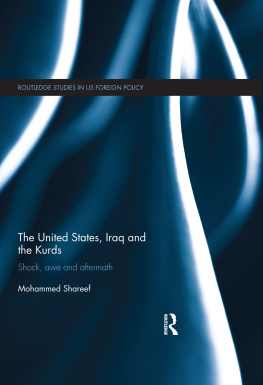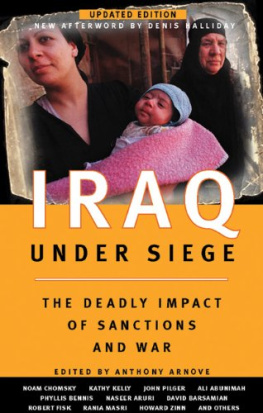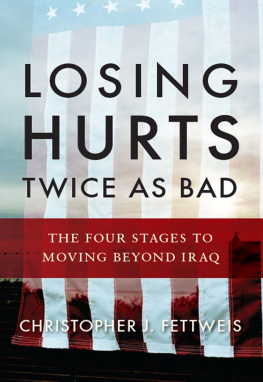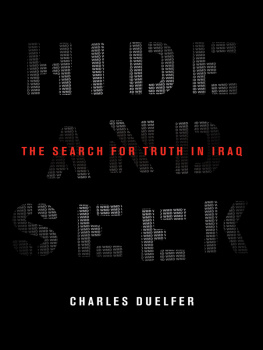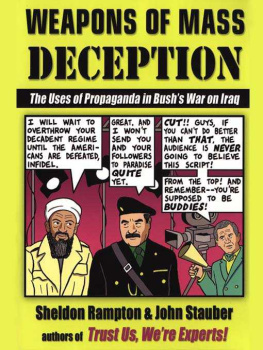Table of Contents
Also by Sheldon Rampton and John Stauber
Banana Republicans
Weapons of Mass Deception
Trust Us, Were Experts!
Trust Mad Cow U.S.A.
Mad Cow U.S.A.
Toxic Sludge Is Good for You!
JEREMY P. TARCHER/PENGUIN
Published by the Penguin Group
Penguin Group (USA) Inc., 375 Hudson Street, New York, New York 10014,
USA Penguin Group (Canada), 90 Eglinton Avenue East, Suite 700,
Toronto, Ontario M4P 2Y3, Canada (a division of Pearson Penguin Canada Inc.)
Penguin Books Ltd, 80 Strand, London WC2R 0RL, England Penguin
Ireland, 25 St Stephens Green, Dublin 2, Ireland (a division of Penguin
Books Ltd) Penguin Group (Australia), 250 Camberwell Road, Camberwell,
Victoria 3124, Australia (a division of Pearson Australia Group Pty Ltd)
Penguin Books India Pvt Ltd, 11 Community Centre, Panchsheel Park,
New Delhi-110 017, India Penguin Group (NZ), Cnr Airborne and Rosedale
Roads, Albany, Auckland 1310, New Zealand (a division of Pearson New
Zealand Ltd) Penguin Books (South Africa) (Pty) Ltd, 24 Sturdee Avenue,
Rosebank, Johannesburg 2196, South Africa
Penguin Books Ltd, Registered Offices:
80 Strand, London WC2R 0RL, England
Copyright 2006 by Center for Media and Democracy
eISBN : 978-1-436-28003-7
All rights reserved. No part of this book may be reproduced, scanned, or distributed in any printed or electronic form without permission. Please do not participate in or encourage piracy of copyrighted materials in violation of the authors rights. Purchase only authorized editions.
Published simultaneously in Canada
Most Tarcher/Penguin books are available at special quantity discounts for bulk purchase for sales promotions, premiums, fund-raising, and educational needs. Special books or book excerpts also can be created to fit specific needs. For details, write Penguin Group (USA) Inc. Special Markets, 375 Hudson Street, New York, NY 10014.
Library of Congress Cataloging-in-Publication Data TK
While the author has made every effort to provide accurate telephone numbers and Internet addresses at the time of publication, neither the publisher nor the author assumes any responsibility for errors, or for changes that occur after publication. Further, the publisher does not have any control over and does not assume any responsibility for author or third-party websites or their content.
http://us.penguingroup.com
Acknowledgments
We thank our employer, the nonprofit educational organization Center for Media and Democracy, and the individuals and nonprofit foundations who have supported its work since 1993. This book is part of the Centers unique mission of investigating propaganda as it is waged by corporations and governments. For information on the Center, visit its website at www.prwatch.org, or contact its office: 520 University Avenue, Suite 227, Madison, Wisconsin 53703; phone (608) 260-9713.
Many thanks to Laura Miller, former editor of the Centers quarterly PR Watch. Some of Lauras research and writing are included in our opening chapter, The Victory of Spin. Thanks also to Diane Farsetta, the Centers senior researcher, and to Bob Burton, who edits our Source Watch website (www.source-watch.org), for their ideas and research contributions, as well as to Center staffers Patricia Barden, Jonathan Rosenblum, Judith Siers-Poisson, and Sari Williams, without whose contributions we would not have had the time to produce this book.
Thanks especially to our editor, Mitch Horowitz, whose invaluable advice, encouragement, and good sense have helped more than we can say. Thanks also to Tarcher/Penguin publisher Joel Fotinos and publicity director Ken Siman.
The following individuals have helped us with ideas, comments, research, and other support: Chris Albritton, Aaron Glantz, Peter Sluglett, Jim Kavanagh, and Walda Wood.
John thanks his colleague Sheldon for tackling most of the research and writing of this book.
INTRODUCTION
The Innocents Abroad
IN NOVEMBER 2003ABOUT THE TIME THAT THE initial euphoria of war began to fade in the United StatesNewsweek magazine reported a startling fact about the tactics Iraqi guerrillas used against U.S. soldiers: In Iraq, when guerrillas place an IED (improvised explosive device) by the side of the road, they sometimes write a warning on the streetin Arabic. The locals understand to steer clear; the Americans drive right into the trap. Everyone knows about it except us, grouses Lieutenant Julio Tirado of the 124th Infantry Regiment, Florida National Guard, patrolling warily in the town of Ramadi.
The story reminded us of an unrelated incident that we happened to witness back in the United States, when we took a trip that required flying on a small commuter airplane. The plane had only a single bathroom, and it had a note taped to the door that said Out of order.
On the same plane, we noticed another travelera woman, dressed in a non-Western white robe that suggested she was from some country in Asia or the Middle East. She was traveling alone and apparently did not know how to speak any English. After the flight got under way, she got up to use the bathroom. She tried the door, but it wouldnt open. The note on the door was written in English, so she couldnt read it. She tried the door again. She looked around at the other passengers and said something in her native language, which no one understood. People tried to tell her that the bathroom was broken, but she didnt understand a word they said. People tried hand gestures, also to no avail. The concept of broken is simple and easily understood in any language, but there is no universal hand gesture for it. No one was able to communicate. Eventually she simply gave up in frustration and returned to her seat.
The incident made us think about our own experiences traveling in foreign countriesnot in countries like England or Mexico, where English is either the native language or is widely spoken in tourist areasbut in countries like Turkey and Japan, where our own ability to communicate was every bit as limited as that of the woman on the plane. Simple tasks such as ordering food in a restaurant, buying batteries, or asking for directions became nearly impossible.
Imagine for a moment that the woman on the airplane were suddenly placed in charge of running a major city in the United States. Would she be able to handle the job? That is essentially the situation in which U.S. troops find themselves in Iraq. They dont simply lack an understanding of Iraqs history and culture, they lack even the language skills needed to communicate about basic, simple things. The enemies they are fighting do not need to be particularly intelligent to outmaneuver them, and they certainly dont need to be noble. (Indeed, they are not.) The mere fact that they can speak the native language confers a huge advantage over U.S. forces, which cannot be overcome by mere money and technology, let alone by the arrogance that has been Americas main defense against the realization that the war in Iraq was a mistake.
On November 15, 2005, Wall Street Journal reporter Greg Jaffe told the story of David (last name withheld for security reasons), a U.S. Army foreign-affairs officer stationed undercover in northwestern Iraq. David wore civilian clothes and was so fluent in Arabic that the locals thought he was one of them. As a result, he was able to tell American military commanders how jihadist fighters had moved into Iraq across the Syrian border. He advised commanders and other officials on how to deal with their Iraqi counterparts and fired incompetent interpreters who had been hired by officials who didnt know the language. But heres the catch: he was one of only a handful of U.S. soldiers with those skills, and the military was in the process of pulling him out of Iraq. According to Colonel John DAgostino, who oversaw his unit, When David leaves, the U.S. Embassys regional office in Mosul wont have a single Arabic speaker or Middle Eastern expert on its staff.

